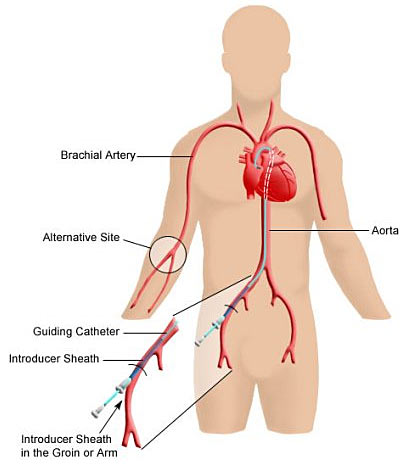Electrophysiology

An electrophysiology study (EPS) is an invasive procedure that tests the heart's electrical system and helps the physician understand the cause of the abnormal heart rhythm. The procedure is performed in the cardiac catheterization lab. In fact, in some ways, the procedure itself is similar to cardiac catheterization.
A small, plastic catheter (tube) is inserted through the groin (or arm, in some cases) and is threaded up into the heart, using a special type of x-ray, called fluoroscopy, to guide the catheter. Once in the heart, electrical signals are sent through
the catheter to the heart tissue to disconnect the electrical pathway between the upper chambers (atria) and lower chambers (ventricles) of the heart (AV nodal ablation).
The results of the study will help the physician determine further therapeutic measures, such as the insertion of a pacemaker or defibrillator, adding or changing medications, additional ablation procedures, or other treatments.
